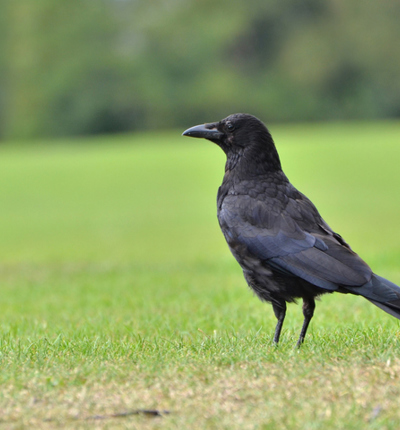
First legal case for Wild Justice challenges Natural England's licences that allow bird killing
Environmental organisation Wild Justice has today issued legal proceedings in the High Court challenging the lawfulness of the General Licence system used by Natural England to authorise the killing of birds that would otherwise be protected.
Posted on 22 March 2019
Wild Justice, a not-for-profit organisation, was launched in February 2019 with the aim of using the law to further nature conservation and wildlife protection. The proceedings issued today are the organisation’s first legal case.
The judicial review challenge concerns Natural England’s decision in January to issue General Licences 04, 05 and 06 which permit the killing of 15 species of birds, including Jays, Collared Doves, Woodpigeons, Jackdaws, and Ring-necked Parakeets. Without such authorisation the killing of those birds would be a criminal offence under the Wildlife and Countryside Act 1981.
The EU Birds Directive and the Wildlife and Countryside Act 1981 provide strong theoretical protection to all birds but allow in certain circumstances for people to take lethal action. This includes where the killing is intended to meet a specific purpose such as preventing the spread of disease or preserving air safety. However the law states that before issuing a so-called General Licence, Natural England as the competent authority must first properly satisfy itself that no alternative non-lethal means, such as scaring, could provide a satisfactory solution.
Wild Justice will say that Natural England has wrongly put the onus on individual licence users to explore non-lethal methods as part of the licence conditions. Furthermore, there is no method in place for checking that licence users exhaust all non-lethal options before resorting to killing the birds.
Wild Justice will argue that Natural England has no power to issue a licence if it has not met the condition that it must itself first consider whether there are non-lethal satisfactory solutions to killing the birds. If Natural England has not properly made that assessment then the General Licences under challenge are unlawful.
Dr Mark Avery, director of Wild Justice, said:
“Natural England and Defra are allowing the casual killing of millions of birds each year with no monitoring, no control and no justifiable reason. Natural England was set up to protect wildlife, not to turn a blind eye to such slaughter. Mass killing of wildlife under the General Licences has been going on for nearly 40 years - it's time that this casual killing ended.”
Tom Short, solicitor at Leigh Day, said:
“Our client argues that the 2019 General Licences GL04-6 are unlawful as Natural England has no power to issue the licences for the simple fact that it failed to comply with the condition precedent under the Wildlife and Countryside Act 1981. This condition states that before issuing these licences Natural England – and not any other body or person – has to be satisfied that there are no alternative solutions to killing wild birds. Natural England has not done that. It has instead told licence users that they must themselves decide whether alternative solutions are ineffective or impracticable. Wild Justice, and its many supporters, believe this is a travesty for wildlife protection in the UK and our client intends to vigorously challenge it.”
Find more information about Leigh Day’s wildlife protection work, please contact Carol Day, Consultant, at cday@leighday.co.uk and Tom Short, Solicitor, at tshort@leighday.co.uk
Wild Justice is a not-for-profit organisation that launched publicly in February 2019. Wild Justice was established by wildlife experts Dr Ruth Tingay, Dr Mark Avery and Chris Packham CBE with the aim of using the law to further nature conservation and wildlife protection across the UK as well as to encourage public participation in nature conservation issues. You can find out more about Wild Justice on Twitter.
Image of a Carrion Crow - over 100,000 are killed under the General Licences every year in the UK

